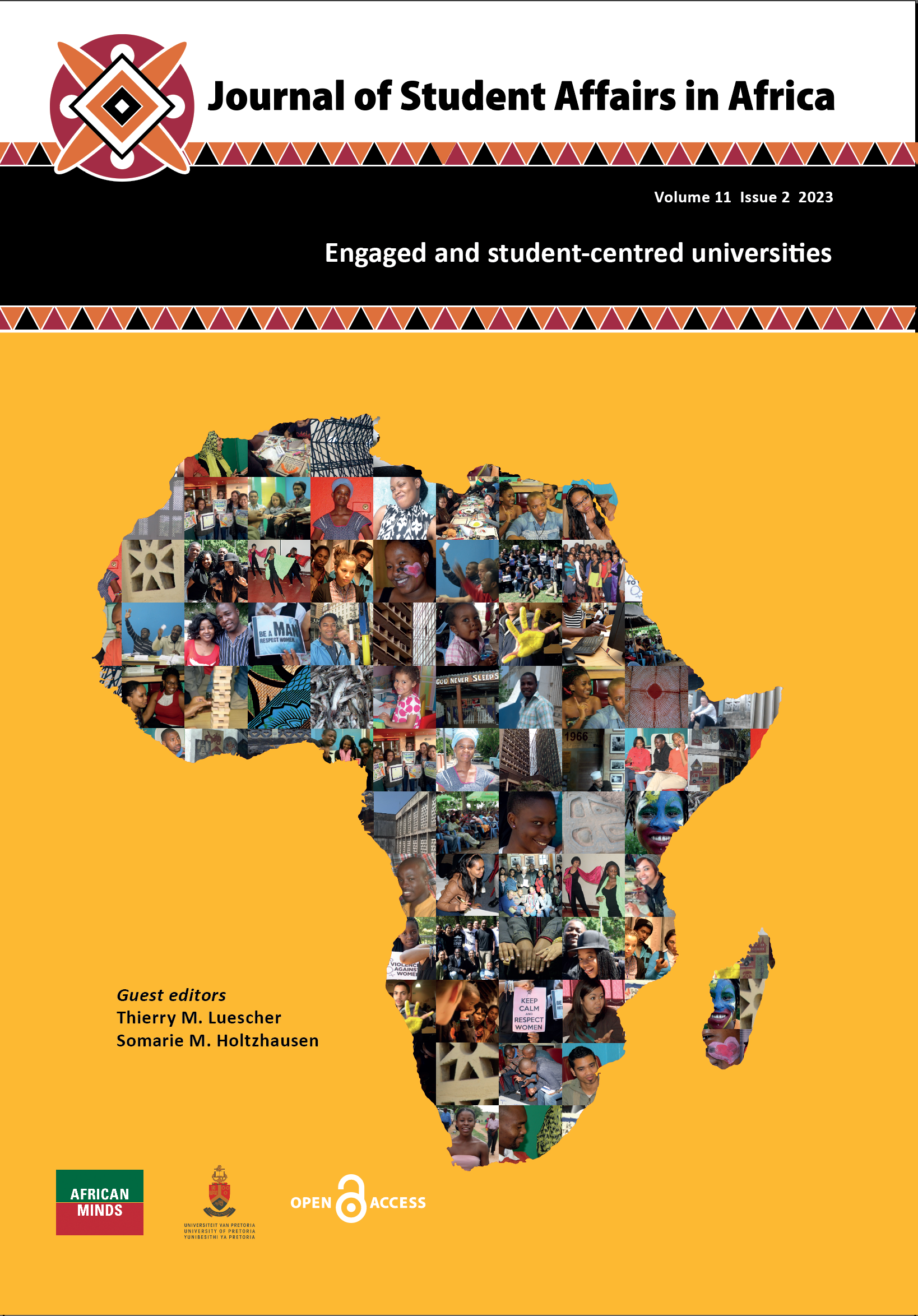An analysis of digital stories of self-care practices among first- year students at a university of technology in South Africa
DOI:
https://doi.org/10.24085/jsaa.v11i2.4911Abstract
This article reports on a qualitative study that explored self-care practices among first-year students
in managing stressors related to the first-year experience in the context of the COVID-19 pandemic.
Qualitative data were collected using a purposive sample between March and June 2022. A total of 26
first-year students registered at a university of technology in South Africa participated in the study by
producing digital stories sharing how they practised self-care. The domains of self-care were adopted
as a framework and data were analysed using thematic analysis. Six domains of self-care practices
emerged from the data and were categorised as physical, emotional, spiritual, relational, professional,
and psychological. The findings show that first-year students engaged in a range of self-care practices
across the domains of self-care including exercising, listening to music, performing ancestral rituals,
donating blood, following successful people on social media, and learning new skills. Further,
relational self-care was the most fundamental domain that underpinned first-year students’ well-
being. In contrast, oversleeping or sleep deprivation, reckless spending, and eating unhealthy food
to cope with stressors related to the first-year experience pointed to unhealthy self-care practices
in managing the stressors. Unhealthy self-care practices can threaten first-year students’ well-being
and possibly academic success. Student affairs and services need to design self-care programmes and
curricula to prevent harm and support adequate self-care. In designing self-care programmes, social
involvement and engagement are fundamental principles that should be emphasised. Future studies
can develop a self-care inventory to identify students at risk of poor self-care and design targeted
interventions to promote self-care.
Downloads
Published
Issue
Section
License
Copyright (c) 2023 Dumile Gumede, Maureen Nokuthula Sibiya

This work is licensed under a Creative Commons Attribution-NonCommercial-ShareAlike 4.0 International License.
Authors who publish with this journal agree to the following terms:
Authors retain copyright and grant the journal right of first publication with the work simultaneously licensed under the Creative Commons Attribution Share-alike 4.0 International License that allows others to share the work with an acknowledgement of the work's authorship and initial publication in this journal.
Authors are able to enter into separate, additional contractual arrangements for the non-exclusive distribution of the journal's published version of the work (e.g., post it to an institutional repository or publish it in a book), with an acknowledgement of its initial publication in this journal.
Authors are permitted and encouraged to post their work online (e.g., in institutional repositories or on their website) prior to and during the submission process, as it can lead to productive exchanges, as well as earlier and greater citation of published work (See: The Effect of Open Access).


